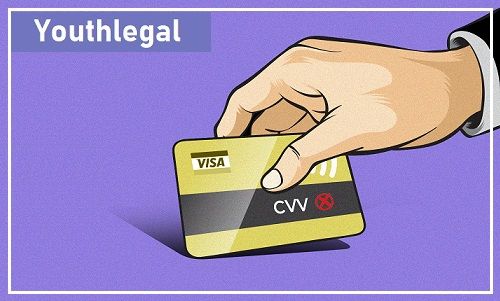Visa has introduced a new feature in India that allows customers to make online transactions without the need for a cardholder verification value (CVV) if the card is tokenized.
This initiative aims to streamline online transactions and enhance their efficiency.
With this feature, merchants can verify the three-digit CVV number on the back of the card once during the tokenization process, eliminating the need for customers to provide it for each domestic transaction.
Tokenization provides an added layer of protection to transactions by replacing card data with a unique code.
Tokenized transactions are double-authenticated using a one-time password (OTP) at the time of tokenization and again during the actual transaction.
Tokenization technology removes the need for users to repeatedly enter their sensitive card information, such as the 16-digit card number, expiration date, and CVV, while conducting transactions on merchant websites.
The technology provides enhanced security by masking card data with a unique code, known as a token.
Additionally, tokenized transactions are two-factor authenticated, first at the moment of tokenization and then again when the one-time password (OTP) is entered.
This technology eliminates the need for online retailers to store customer card data, reducing the risk of cyber fraud.
Visa is working with the industry to remove the CVV from tokenized card transactions, which will make the payment process quicker and more seamless.
“Tokenization is widely used in the mainstream e-commerce space,” said Ramakrishnan Gopalan, Visa’s head of products for India and South Asia.
Visa’s new CVV-free payment feature is now available to large merchants like Zomato and payment service providers like Razorpay.
This comes as Visa discontinues its “Visa Safe Click” single-click checkout service due to the Reserve Bank of India’s ongoing pressure on payment providers to tighten their security measures.
In 2019, Visa introduced the Visa Safe Click service, which allowed transactions under Rs 2,000 to be processed without the need for CVV or OTP.
The Reserve Bank of India had relaxed the two-factor authentication requirement for online card transactions up to Rs 2,000 in 2016 to encourage digital payments.
Ramakrishnan Gopalan, Visa’s head of products for India and South Asia, clarified that Visa has decided to temporarily halt the use of its single-click checkout service, Visa Safe Click, while still keeping it available in the market.
This decision was made to complement the new CVV-free solution, which aims to improve convenience in online transactions.
Gopalan suggested that the two services may be merged for transactions under Rs 2,000 to create an even more streamlined payment experience.
He stated, “In the best-case scenario, combining the no-CVV experience with an evolved Safe Click experience will result in a super-seamless payments journey.”
Issues With Tokenization
The deadline for card tokenization set by the RBI was repeatedly postponed until it was finally set to October of last year.
Until June of the same year, large merchants were apprehensive about the payments network’s scalability for tokenization and the overall readiness of the ecosystem, which could lead to disruptions in the customer payment experience.
However, tokenization is being increasingly embraced. According to Visa, it had already issued over 250 million tokens in India as of March 2023.
Tough Competition To UPI
Currently, the card payment industry is facing a tough competition from the Unified Payments Interface (UPI) infrastructure for online payments, which provides a simplified payment experience with a PIN.
Visa, the largest card system in the country, is hoping to stay ahead of the competition and provide a seamless checkout experience for consumers in online transactions with its new checkout options for stored cards.
The Reserve Bank of India recently released statistics indicating that in February, the total number of debit and credit transactions in the country was 458.8 million, with a total value of Rs 1.68 lakh crore.
In contrast, the National Payments Corporation of India’s figures showed that the total number of UPI transactions in February exceeded 7.53 billion, with payments totaling Rs 12.35 lakh crore, highlighting the widespread adoption of the UPI payments infrastructure.
